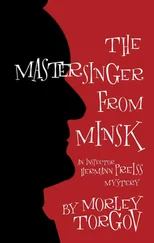Christopher Morley - Where the Blue Begins
Здесь есть возможность читать онлайн «Christopher Morley - Where the Blue Begins» весь текст электронной книги совершенно бесплатно (целиком полную версию без сокращений). В некоторых случаях можно слушать аудио, скачать через торрент в формате fb2 и присутствует краткое содержание. Жанр: Проза, на английском языке. Описание произведения, (предисловие) а так же отзывы посетителей доступны на портале библиотеки ЛибКат.
- Название:Where the Blue Begins
- Автор:
- Жанр:
- Год:неизвестен
- ISBN:нет данных
- Рейтинг книги:5 / 5. Голосов: 1
-
Избранное:Добавить в избранное
- Отзывы:
-
Ваша оценка:
- 100
- 1
- 2
- 3
- 4
- 5
Where the Blue Begins: краткое содержание, описание и аннотация
Предлагаем к чтению аннотацию, описание, краткое содержание или предисловие (зависит от того, что написал сам автор книги «Where the Blue Begins»). Если вы не нашли необходимую информацию о книге — напишите в комментариях, мы постараемся отыскать её.
Where the Blue Begins — читать онлайн бесплатно полную книгу (весь текст) целиком
Ниже представлен текст книги, разбитый по страницам. Система сохранения места последней прочитанной страницы, позволяет с удобством читать онлайн бесплатно книгу «Where the Blue Begins», без необходимости каждый раз заново искать на чём Вы остановились. Поставьте закладку, и сможете в любой момент перейти на страницу, на которой закончили чтение.
Интервал:
Закладка:
It was while grooming the roller that it struck him his own appearance was unusual for a highway mechanic. He was still wearing the famous floorwalker suit, which he had punctiliously donned every Sunday for chapel. But he had had to flee without a hat — even without his luggage, which was neatly packed in a bag in the vestry. That, he felt sure, Mr. Poodle had already burst open for evidences of heresy and schism. The pearly trousers were stained with oil and coal-dust; the neat cutaway coat bore smears of engine-grease. As long as he stuck to the roller and the telltale garments, pursuit and identification would of course be easy enough. But he had taken a fancy to the machine: he decided not to abandon it yet.
Obviously it was better to keep to the roads, where the engine would at any rate be less surprisingly conspicuous, and where it would leave no trail. So he made a long circuit across meadows and pastures, carrying a devilish clamour into the quiet Sunday afternoon. Regaining a macadam surface, he set oil at random, causing considerable annoyance to the motoring public. Finding that his cutaway coat caused jeers and merriment, he removed it; and when any one showed a disposition to inquire, he explained that he was doing penance for an ill-judged wager. His oscillating perch above the boiler was extraordinarily warm, and he bought a gallon jug of cider from a farmer by the way. Cheering himself with this, and reviewing in his mind the queer experiences of the past months, he went thundering mildly on.
At first he had feared a furious pursuit on the part of the Bishop, or even a whole college of bishops, quickly mobilized for the event. He had imagined them speeding after him in a huge motor-bus, and himself keeping them at bay with lumps of coal. But gradually he realized that the Bishop would not further jeopardize his dignity, or run the risk of making himself ridiculous. Mr. Poodle would undoubtedly set the township road commissioner on his trail, and he would be liable to seizure for the theft of a steam roller. But that could hardly happen so quickly. In the meantime, a plan had been forming in his mind, but it would require darkness for its execution.
Darkness did not delay in coming. As he jolted cheerfully from road to road, holding up long strings of motors at every corner while he jovially held out his arm as a sign that he was going to turn, dark purple clouds were massing and piling up. Foreseeing a storm, he bought some provisions at a roadhouse, and turned into a field, where he camped in the lee of a forest of birches. He cooked himself an excellent supper, toasting bread and frankfurters in the firebox of the roller. With boiling water from a steam-cock he brewed a panikin of tea; and sat placidly admiring the fawn-pink light on wide pampas of bronze grasses, tawny as a panther's hide. A strong wind began to draw from the southeast. He lit the lantern at the rear of the machine and by the time the rain came hissing upon the hot boiler, he was ready. Luckily he had saved the tarpaulin. He spread this on the ground underneath the roller, and curled up in it. The glow from the firebox kept him warm and dry.
“Summer is over,” he said to himself, as he heard the clash and spouting of rain all about him. He lay for some time, not sleepy, thinking theology, and enjoying the close tumult of wind and weather.
People who have had an arm or a leg amputated, he reflected, say they can still feel pains in the absent member. Well, there's an analogy in that. Modern skepticism has amputated God from the heart; but there is still a twinge where the arteries were sewn up.
He slept peacefully until about two in the morning, except when a red-hot coal, slipping through the grate-bars, burned a lamentable hole in his trousers. When he woke, the night still dripped, but was clear aloft. He started the engine and drove cautiously, along black slippery roads, to Mr. Poodle's house. In spite of the unavoidable racket, no one stirred: he surmised that the curate slept soundly after the crises of the day. He left the engine by the doorstep, pinning a note to the steering-wheel. It said:
To Rev. J. Rover Poodle
this useful steam-roller as a symbol of the theological mind
Mr. Gissing
CHAPTER THIRTEEN
The steamship Pomerania, which had sailed at noon, was a few hours out of port on a calm gray sea. The passengers, after the bustle of lunch and arranging their staterooms; had settled into their deck chairs and were telling each other how much they loved the ocean. Captain Scottie had taken his afternoon constitutional on his private strip of starboard deck just aft the bridge, and was sitting in his comfortable cabin expecting a cup of tea. He was a fine old sea-dog: squat, grizzled, severe, with wiry eyebrows, a short coarse beard, and watchful quick eyes. A characteristic Scot, beneath his reticent conscientious dignity there was abundant humour and affection. He would have been recognized anywhere as a sailor: those short solid legs were perfectly adapted for balancing on a rolling deck. He stood by habit as though he were leaning into a stiff gale. His mouth always held a pipe, which he smoked in short, brisk whiffs, as though expecting to be interrupted at any moment by an iceberg.
The steward brought in the tea-tray, and Captain Scottie settled into his large armchair to enjoy it. His eye glanced automatically at the barometer.
“A little wind to-night,” he said, his nose wrinkling unconsciously as the cover was lifted from the dish of hot anchovy toast.
“Yes, sir,” said the steward, but lingered, apparently anxious to speak further.
“Well, Shepherd?”
“Beg pardon, sir, but the Chief Steward wanted me to say they've found someone stowed away in the linen locker, sir. Queer kind of fellow, sir, talks a bit like a padre. 'E must've come aboard by the engine-room gangway, sir, and climbed into that locker near the barber shop.”
The problem of stowaways is familiar enough to shipmasters. “Send him up to me,” said the Captain.
A few minutes later Gissing appeared, escorted by a burly quartermaster. Even the experienced Captain admitted to himself that this was something new in the category of stowaways. Never before had he seen one in a braided cutaway coat and wedding trousers. It was true that the garments were in grievous condition, but they were worn with an air. The stowaway's face showed some embarrassment, but not at all the usual hangdog mien of such wastrels. Involuntarily his tongue moistened when he saw the tray of tea (for he had not eaten since his supper on the steam roller the night before), but he kept his eyes politely averted from the food. They rose to a white-painted girder that ran athwart the cabin ceiling. Certified to Accommodate the Master he read there, in letters deeply incised into the thick paint. “A good Christian ship,” he said to himself. “It sounds like the Y. M. C. A.” He was pleased to think that his suspicion was already confirmed: ships were more religious than anything on land.
The Captain dismissed the quartermaster, and addressed himself sternly to the culprit.
“Well, what have you to say for yourself?”
“Please, Captain,” said Gissing politely, “do not allow your tea to get cold. I can talk while you eat.” Behind his grim demeanour the Captain was very near to smiling at this naivete. No Briton is wholly implacable at tea-time, and he felt a genuine curiosity about this unusual offender.
“What was your idea in coming aboard?” he said. “Do you know that I can put you in irons until we get across, and then have you sent home for punishment? I suppose it's the old story: you want to go sight-seeing on the other side?”
“No, Captain,” said Gissing. “I have come to sea to study theology.”
Читать дальшеИнтервал:
Закладка:
Похожие книги на «Where the Blue Begins»
Представляем Вашему вниманию похожие книги на «Where the Blue Begins» списком для выбора. Мы отобрали схожую по названию и смыслу литературу в надежде предоставить читателям больше вариантов отыскать новые, интересные, ещё непрочитанные произведения.
Обсуждение, отзывы о книге «Where the Blue Begins» и просто собственные мнения читателей. Оставьте ваши комментарии, напишите, что Вы думаете о произведении, его смысле или главных героях. Укажите что конкретно понравилось, а что нет, и почему Вы так считаете.










